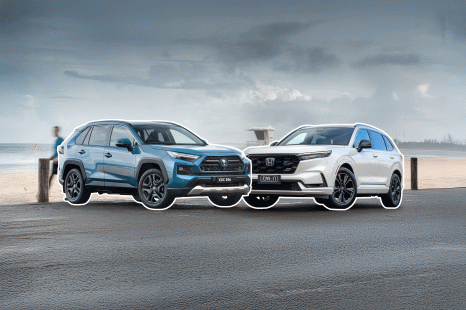

Andrew Maclean
Honda CR-V RS e:HEV vs Toyota RAV4 Edge Hybrid: Spec battle
5 Days Ago
A new four-cylinder turbo-petrol engine brings fresh energy to this iconic off-roader, but many of its fundamental flaws remain.
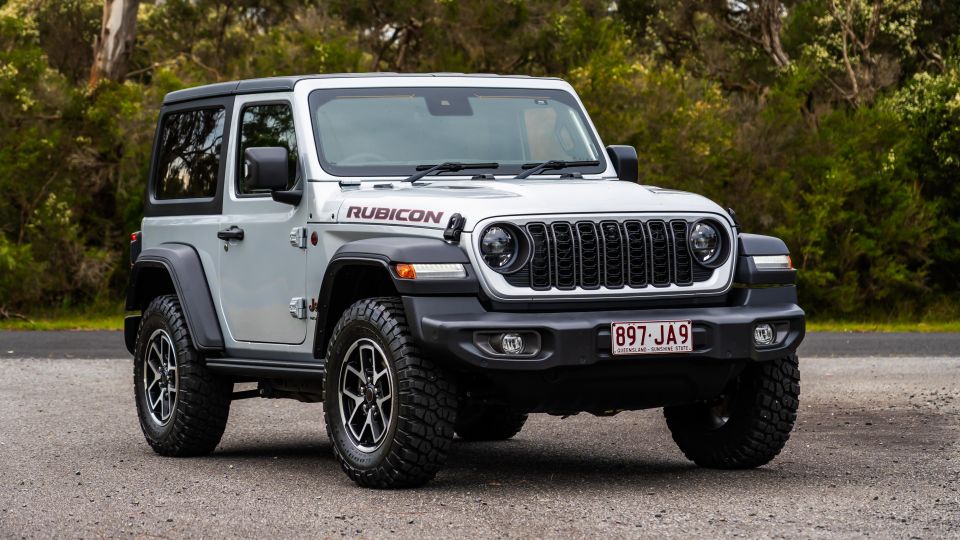
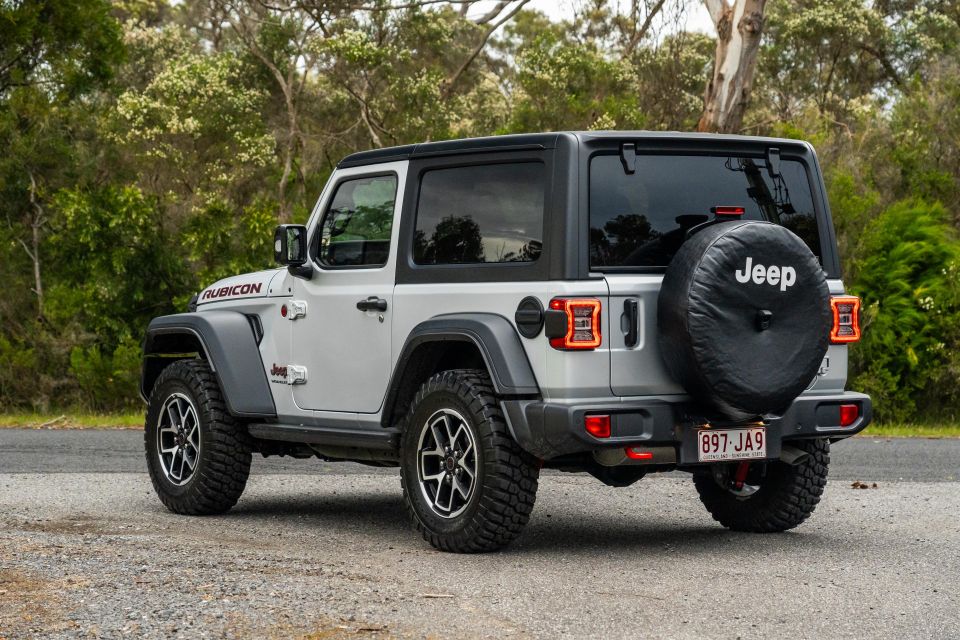

Quickly see how this car stacks up against its competition. Select any benchmark to see more details.
Where expert car reviews meet expert car buying – CarExpert gives you trusted advice, personalised service and real savings on your next new car.
The Jeep Wrangler has always been an icon.

With a lineage that dates back to the original Willys Jeep of the 1940s, this boxy off-roader has looked much the same since the Wrangler model line started life in 1986. Now in fourth-generation JL-series form, which was released in 2017, it has received a mid-life makeover that brings a wide array of upgrades.
The highlight is a new turbocharged 2.0-litre four-cylinder petrol engine that replaces the archaic naturally aspirated 3.6-litre Pentastar petrol V6. It produces a smidge less power, but over 50Nm more torque, plus Jeep claims it’s more fuel-efficient.
Other tweaks include a slightly altered seven-slot front grille, new alloy wheels, windscreen-integrated radio antenna, a larger 12.3-inch touchscreen infotainment system with wireless Apple CarPlay and Android Auto, soft-touch dashboard, and an integrated accessory rail atop the dash.
It also picks up first- and second-row side curtain airbags, as well as front and side seat-mounted airbags.
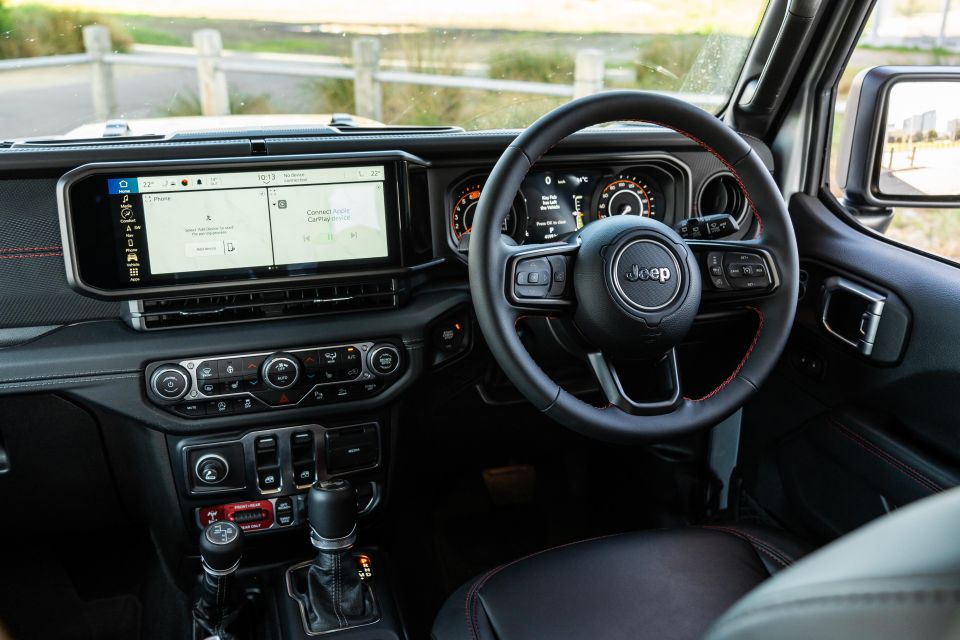
On test here is arguably the coolest-looking and most iconic Wrangler in the range, the three-door Rubicon. You’ve only been able to get this flagship, off-road-centric trim level in the short-wheelbase two-door body style for a few years now.
Has Jeep improved the age-old formula with its latest Wrangler update? Read on to find out.
The upgraded two-door Wrangler Rubicon is $1000 more affordable than the pre-update V6-powered model. Despite this, at $82,950 before on-roads it’s more than double the price of the Suzuki Jimny three-door automatic.
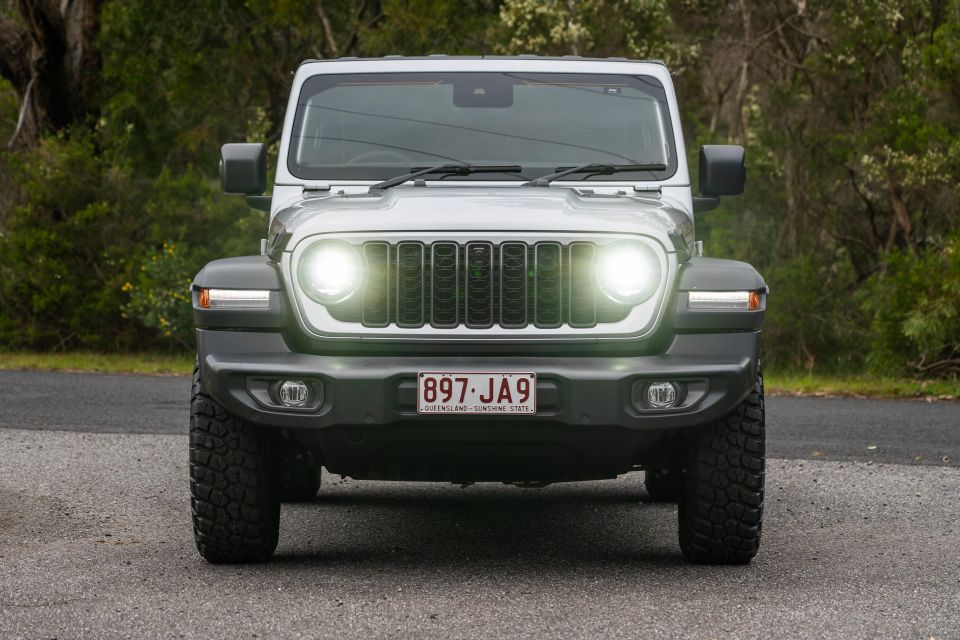
| Model | Price before on-road costs |
|---|---|
| Jeep Wrangler Unlimited Sport S | $75,950 |
| Jeep Wrangler Rubicon | $82,950 |
| Jeep Wrangler Unlimited Overland | $83,950 |
| Jeep Wrangler Unlimited Rubicon | $89,450 |
To see how the Jeep Wrangler lines up against the competition, check out our comparison tool
Walking up to the Jeep Wrangler Rubicon, it has a menacing presence thanks to the wide fender flares and purpose-built stance. It’s a big vehicle, but it’s also a little cute-looking as it’s short and stubby, like the Jimny.
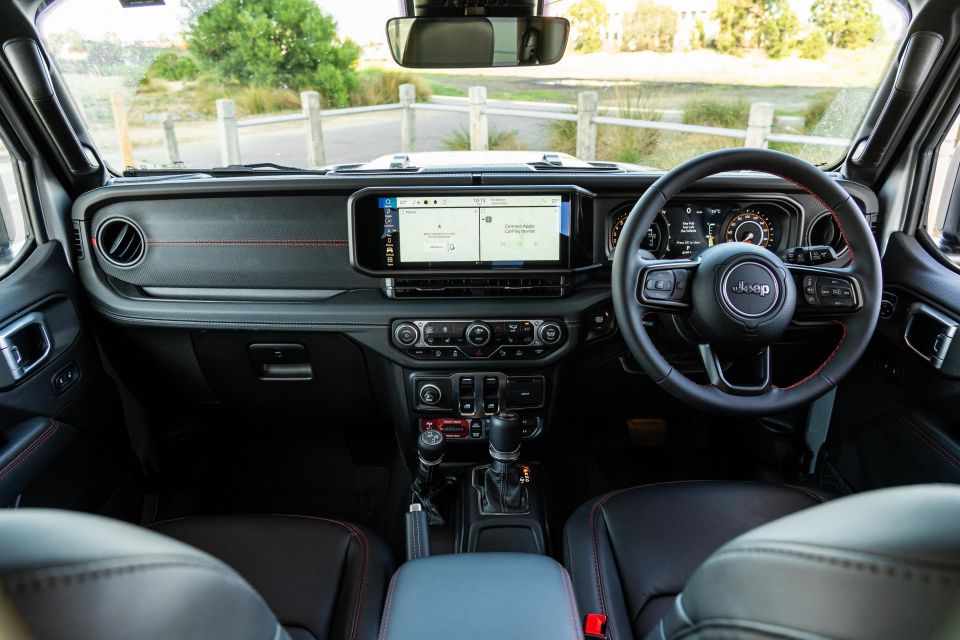
As you hop in, the doors are a little tricky to open as they can slam shut unless you open them enough to reach the first detent, which is new for this facelift. There were many times when I’d open the door, go to step in, and then the door would squish me.
It’s also a big hike into the cabin. Sure, there are A-pillar-mounted grab handles, but the lack of side steps and generous ground clearance make it quite an effort. Side steps can impact ramp-over angles, so it’s a sacrifice made for more capability in the bush.
Despite the sad fact many people buy Wranglers for the look and rarely leave the blacktop, this is a dedicated off-roader and almost everything about it is there for that purpose.
The view from the driver’s seat is very high and commanding. Many buy SUVs for their extra ride height, but the Wrangler goes a step further and really makes you feel in charge.
As standard, the Wrangler Rubicon comes with soft Nappa leather seat trim, which feels a little too fancy in a vehicle that’s intended to get dirty and muddy off-road.
Despite this, they’re great seats that offer lots of support, which is paramount if you’re heading into the rough stuff. In particular, I appreciated the amount of thigh support you can dial into the driver’s seat.
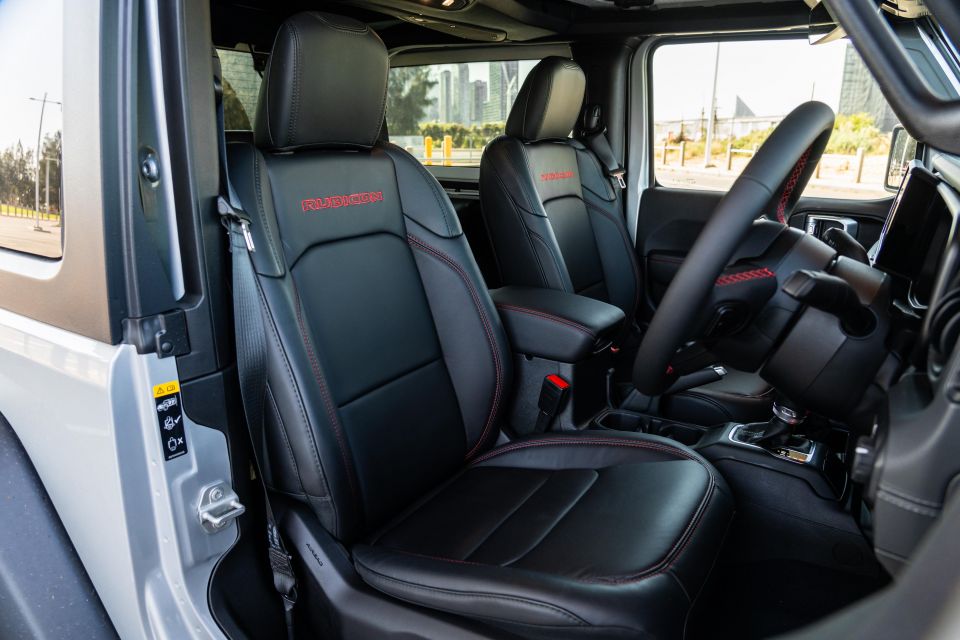
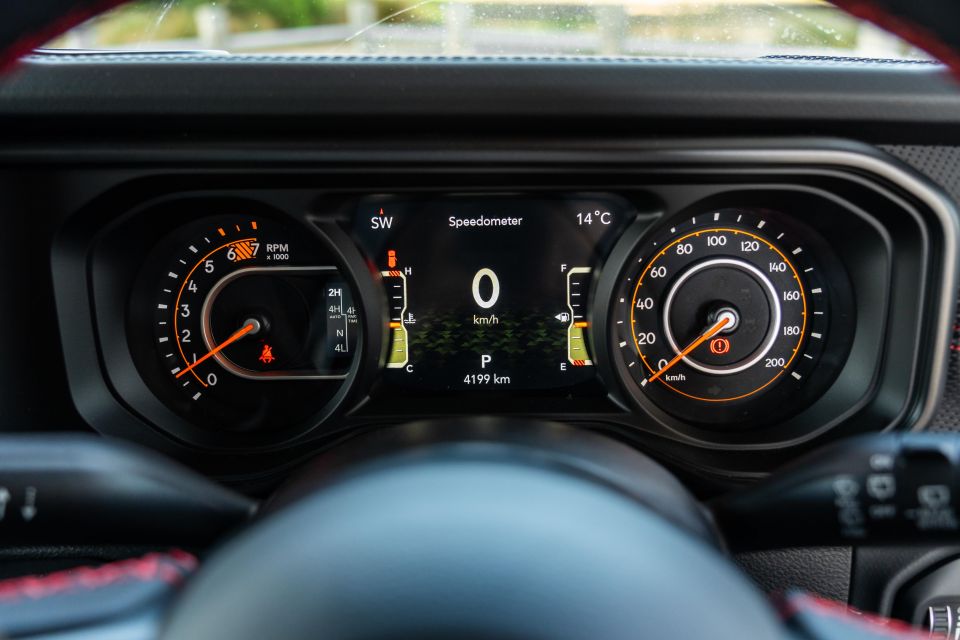
The driving position isn’t perfect, however, as there’s a very narrow footwell and still no footrest – which has been a bugbear with the Wrangler for decades now. It baffles me how Jeep hasn’t fixed this, and during long drives it gets really annoying.
Ahead of the driver is a well-sized steering wheel wrapped in deliciously soft leather. It also offers a generous amount of tilt and reach adjustment, which is great because it means people of many different statures can get comfortable behind the wheel.
All the buttons on the steering wheel are logically placed and clearly labelled. Like in other Jeeps, there are also buttons on the back of the steering wheel for controlling the sound system volume and music tracks.
Disappointingly, the stalks behind the steering wheel are still cheap-feeling and operate with an unsatisfying thwack. This has been a Wrangler trait for years now.
There’s a classic instrument cluster setup that thankfully has physical dials for the tacho and speedo, which are easy to read. There’s also a small 7.0-inch driver info display that has numerous informative pages you can cycle through, though more of them should include a digital speedo readout.
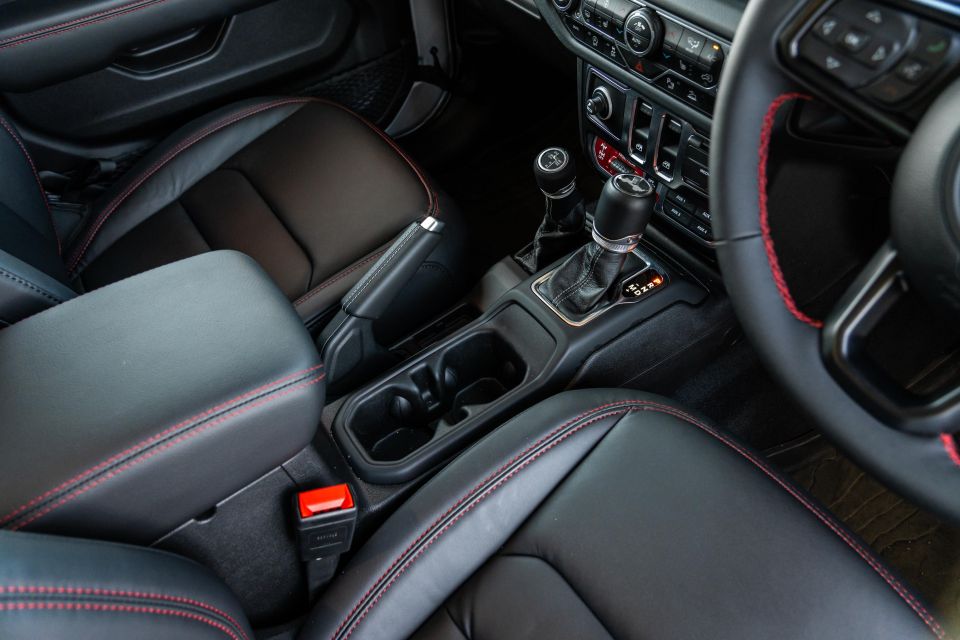
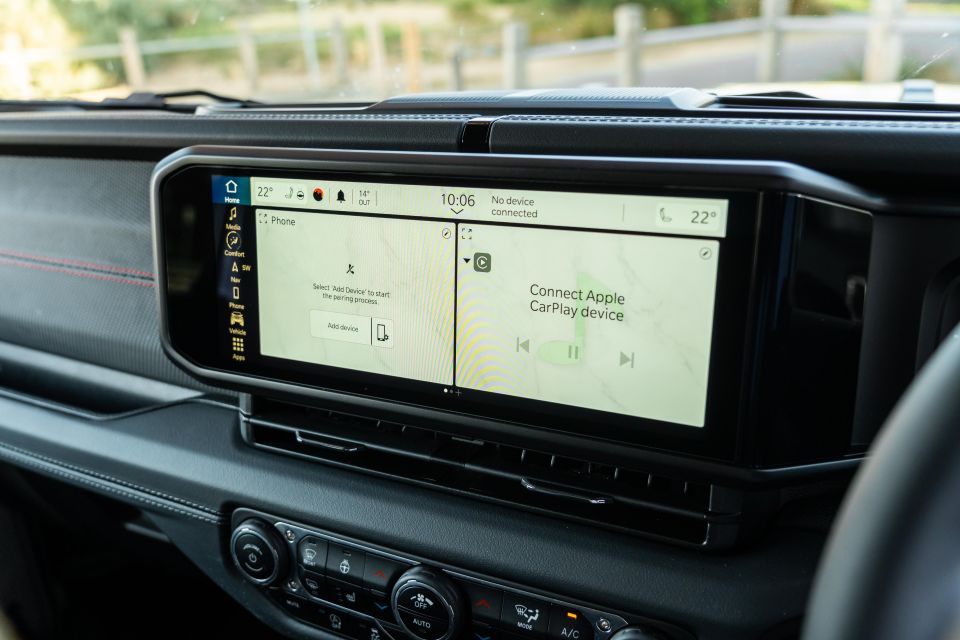
Moving across, the updated Wrangler range has a 12.3-inch touchscreen infotainment system that’s larger and notably more snappy than the pre-update model’s smaller unit. Its display is also bright and crisp.
As standard, there’s both wired and wireless Apple CarPlay and Android Auto. With my iPhone 15 Pro Max connected wirelessly I didn’t experience any major issues, though there were occasional dropouts in known interference points.
A drawback of the Wrangler’s packaging is there’s no spot for a wireless phone charger. This means if you want to keep your phone battery topped up while using smartphone mirroring, you’re forced to plug in with a USB cable.
Another hinderance of the packaging is the lack of storage space in the cabin. There are two cupholders along the centre tunnel, plus a small slot for your phone, but beyond that there isn’t much besides a decent centre console box and armrest, and tiny door pockets.
The chunky gear selector, transfer case lever, and physical handbrake don’t help the case. That said, there’s something overtly masculine about gripping meaty levers.
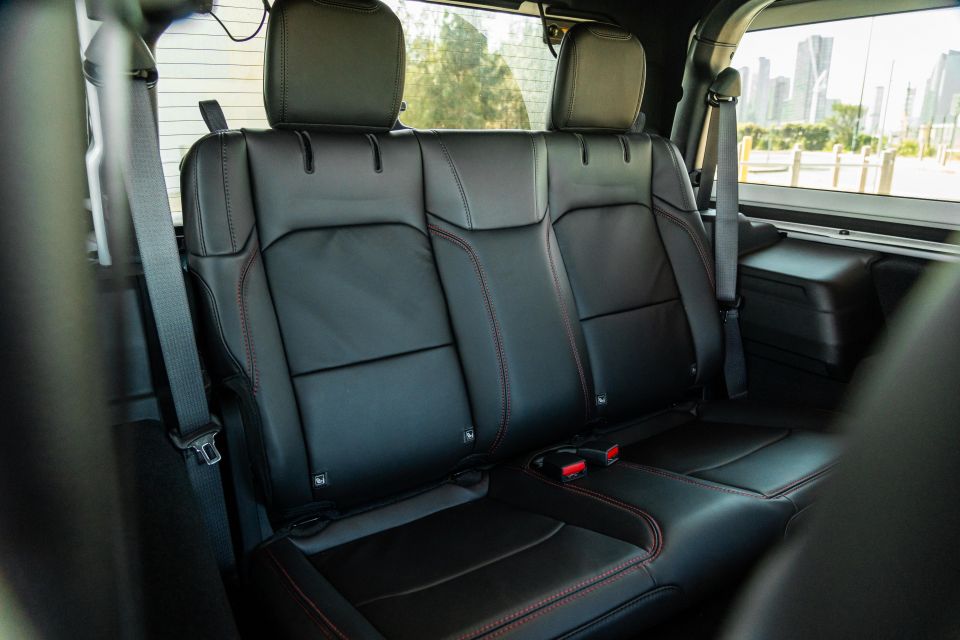
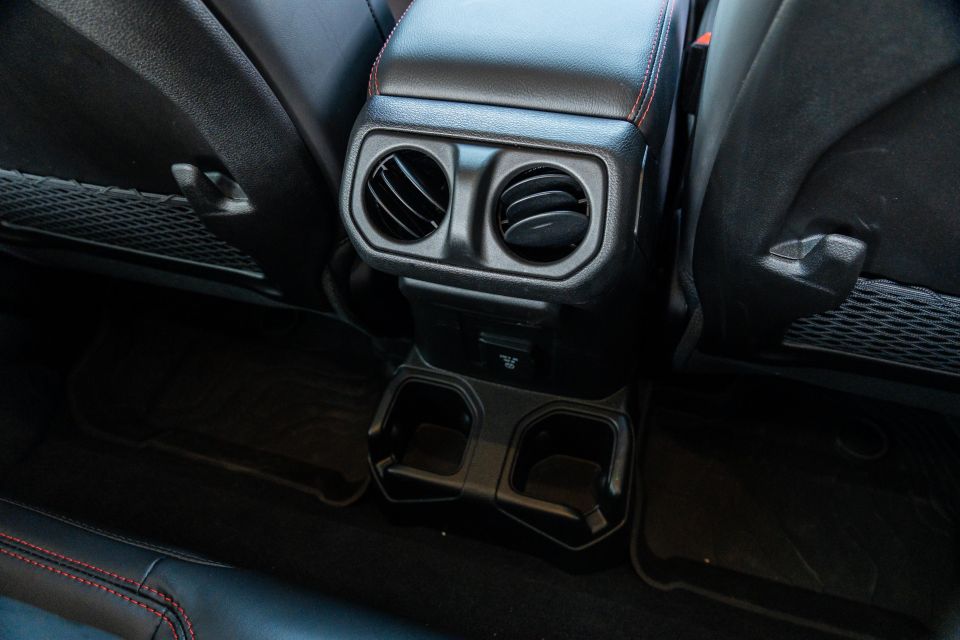
As a result of the packaging, pretty much all the other major switchgear is on the centre stack, including the power window switches – the doors are removable, so this isn’t surprising. The amount of physical switchgear isn’t all bad though, as Jeep has stuck with a physical climate control setup with easy-to-understand buttons and knobs.
Around the cabin there’s a plethora of hard plastics, which isn’t surprising in a vehicle like this, but also a little crook given the asking price. There are some softer finishes in high touch-point areas, but not as many as you’d expect in a vehicle as expensive as this.
Moving to the second row, only the front passenger seat slides forward easily as it’s not electrically adjustable. Despite this, clambering into the Wrangler’s second row isn’t easy.
Once you’re back there, the space on offer is okay but not fantastic. It’s a fun space for short journeys. At a leggy 182cm, I have good head and shoulder room, and adequate leg and toe room, though my knee hits the centre console.
In terms of second-row amenities there are air vents on the back of the centre console, cupholders, USB ports, and a 230V power point.
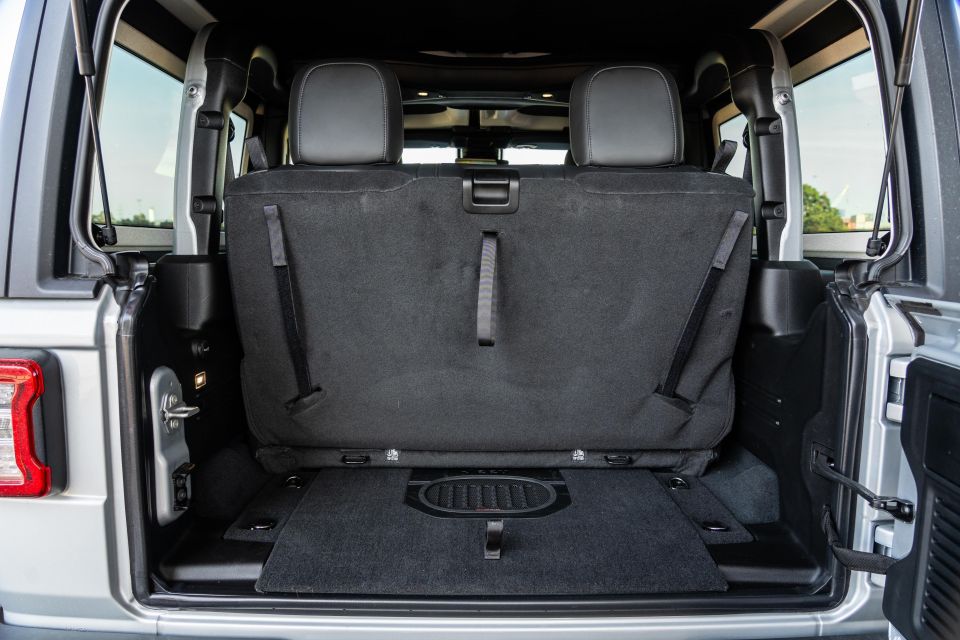
Around the back there’s a weird tailgate setup, including a side-hinging lower portion with the spare tyre mounted on it, under a top-hinging upper glass portion. It’s a bit of pain to live with as you need to account for swinging the heavy tailgate open when parking.
Jeep doesn’t actually quote boot capacity figures for the two-door Wrangler, but it’s pretty small especially with the rear seats up.
Equally as strange as the tailgate setup, the rear bench seat folds and tumbles as one unit, which is frustrating if you have three passengers and need more cargo space.
Lastly, the Wrangler is still technically a convertible as you can remove the roof panels and doors. The front roof panels can be removed easily, though there’s nowhere to store them, which means they’ll have to stay at home or at camp. Regardless, it’s a fun and thrilling way to experience this off-roader.
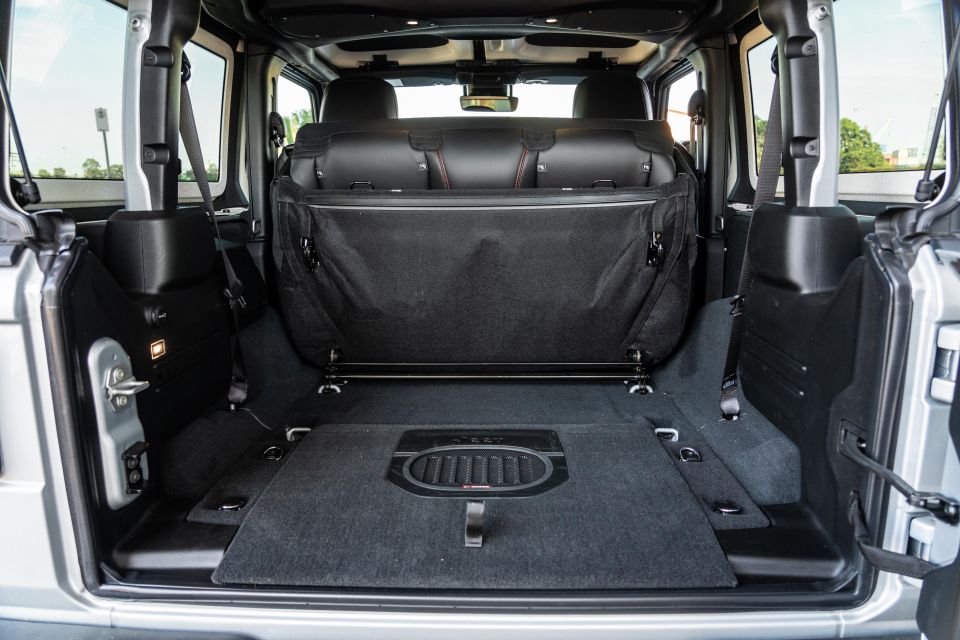
| Dimensions | Jeep Wrangler Rubicon |
|---|---|
| Length | 4334mm |
| Width | 1894mm |
| Height | 1879mm |
| Wheelbase | 2459mm |
| Cargo capacity | N/A |
To see how the Jeep Wrangler lines up against the competition, check out our comparison tool
In Australia, the Jeep Wrangler is now powered exclusively by a 2.0-litre four-cylinder turbo-petrol engine, replacing the outgoing model’s non-turbo 3.6-litre petrol V6.
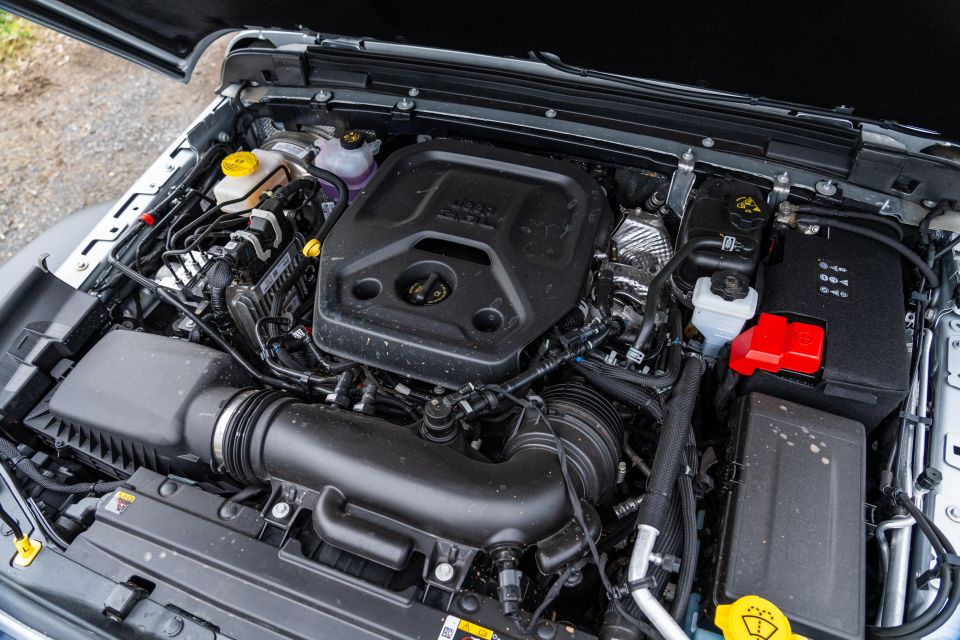
| Specifications | Jeep Wrangler Rubicon |
|---|---|
| Engine | 2.0L 4cyl turbo-petrol |
| Power | 200kW @ 5250rpm |
| Torque | 400Nm @ 3000-4500rpm |
| Transmission | 8-speed auto |
| Drive type | Rock-Track Active On-Demand 4×4 (2H, 4A, 4H, 4L, Crawl) |
| Fuel economy (claimed) | 9.9L/100km |
| Fuel economy (as tested) | 11.2L/100km (660km) |
| CO2 emissions (claimed) | 225g/km |
| Fuel tank | 66 litres |
| Weight | 1977kg (tare) |
| Braked towing capacity | 1497kg |
| Gross vehicle mass (GVM) | 2404kg |
| Gross combination mass (GCM) | 3751kg |
To see how the Jeep Wrangler lines up against the competition, check out our comparison tool
I’m used to hearing big six-cylinder sound when starting up the Wrangler, so the muted note of the turbo-four in the updated model took me by surprise.
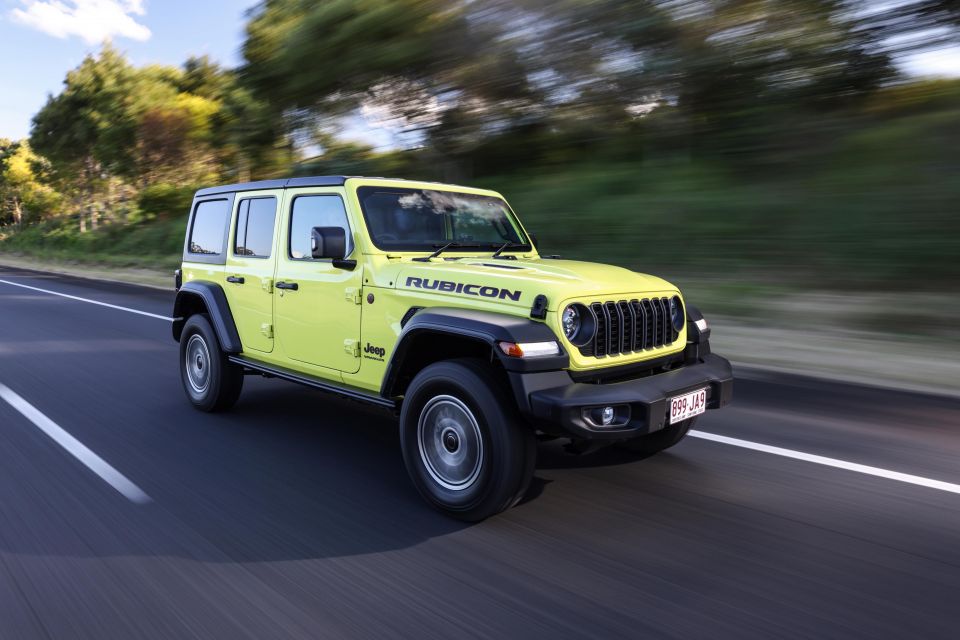
In fact, this new engine sounds a little boring and shrill when revved, but being able to hear the turbo sounds from inside the cabin is fun.
Despite not offering as much character as the wheezy old Pentastar V6, the new four-cylinder is very perky and rev-happy. You’ll easily win the traffic light grand prix, though you’ll pay for a heavy right foot at the fuel bowser.
It tends to run out of revs a bit in the first few gears, especially when the engine is cold, which feels overtly old-school despite being a brand-new car.
There are multiple ways of driving the Wrangler Rubicon due to its selectable four-wheel drive system, called Rock-Track Active On-Demand 4×4.
You’re able to drive in two-high (2H), which means rear-wheel drive and a good way to reduce fuel consumption if you’re on sealed roads, but if you want the added security of all-wheel drive you can select four-automatic (4A).
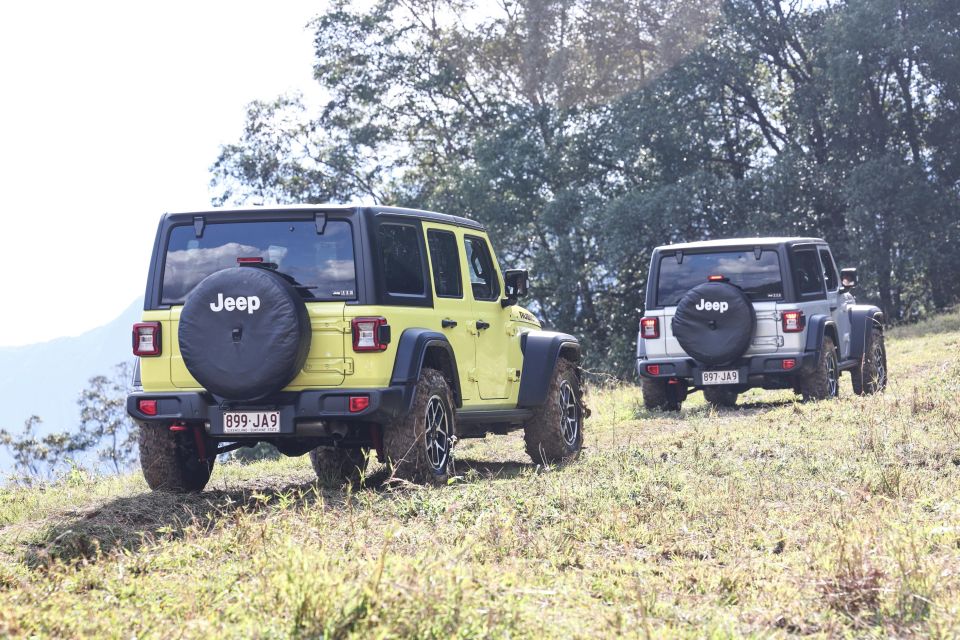
At low speeds the roar and rumble from the BFGoodrich mud-terrain tyres is pronounced inside the cabin on sealed surfaces. I had many passengers asking me if there was something wrong with the car, before letting them know that’s just how off-road tyres sound on bitumen.
The Wrangler’s electrically assisted recirculating-ball hydraulic power steering is very heavy, needs to be unwound in tight turns and makes squealing hydraulic sounds when you turn the wheel.
In many other off-road SUVs fitted with all-electric power steering systems (no pump or fluid, just a motor), the steering is much lighter and easier to handle, and there aren’t as many unwanted steering shunts off-road.
Even though the two-door Wrangler is shorter than the four-door Unlimited, the steering makes it a hard thing to park. In addition to accounting for the side-hinged tailgate when parking, you also need to be mindful of the humongous front bumper that sticks out further than you think.
As standard, there are front and rear parking sensors, plus a front and rear camera to make the parking process easier. The cameras can also be utilised off-road to help you see where you’re going.
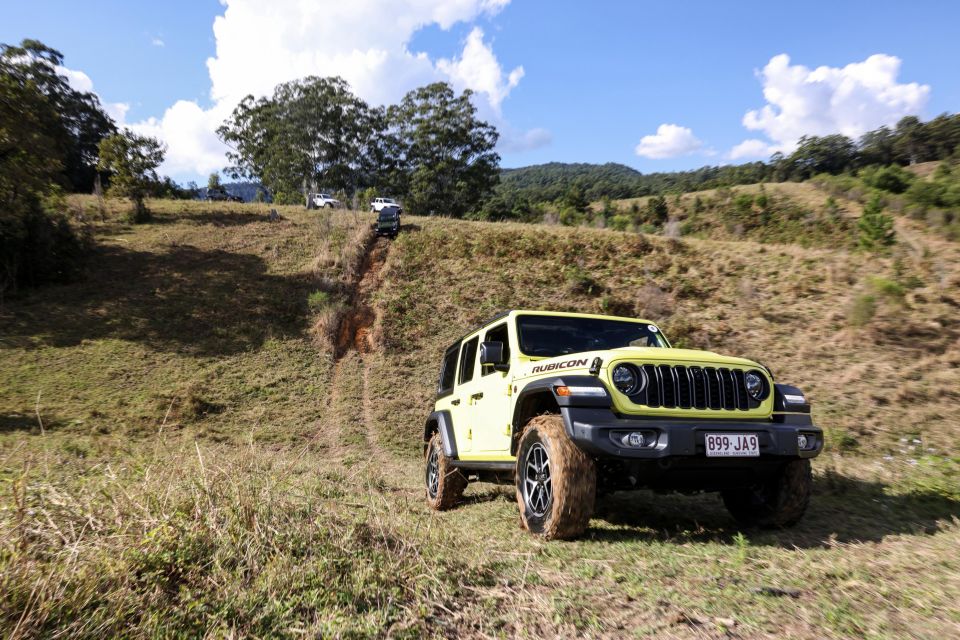
Where expert car reviews meet expert car buying – CarExpert gives you trusted advice, personalised service and real savings on your next new car.
Around town and at higher speeds the suspension feels soft and floaty. It’s obviously setup for a comfortable off-road ride with plenty of compliance and articulation. On-road, however, it flops and wobbles over bumps, which in all fairness is a characteristic of short-wheelbase solid-axle body-on-frame vehicles, much like the Jimny.
It’s far more stable than previous generations, but driving the Wrangler remains a rather hands-on experience as the steering is vague at speed. You need to make almost never-ending minor steering adjustments to make sure you’re heading in a straight line.
The turbo-petrol engine still has plenty of punch at highway speeds. There’s enough left in the tank if you need to overtake, though going faster in this car feels a little hair-raising, and not in a good way.
What’s most noticeable at higher speeds is the amount of wind and tyre noise. It’s pretty bad, but you need to remember this essentially has the aerodynamic properties of a shoebox, and it rides on mud-terrain tyres.
Thankfully, you can crank up the surprisingly good sound system to drown out the booming sound, but that doesn’t change the fact this isn’t the most comfortable highway tourer.
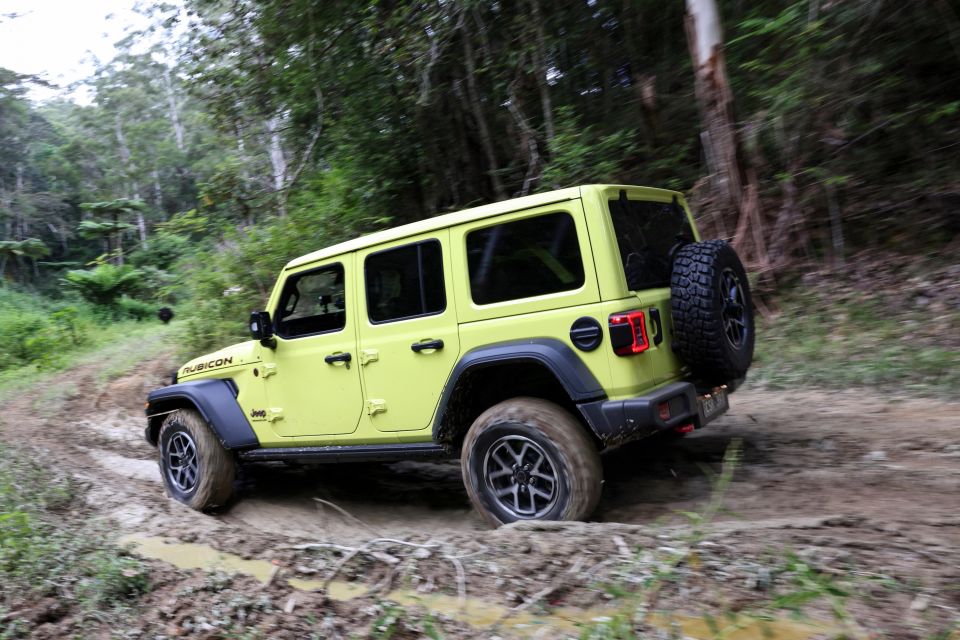
In terms of off-roading, we didn’t get an opportunity to head too far away from the blacktop this time around, but at the press launch last year my colleague Josh Nevett hit some pretty hard-core trails and said the Wrangler never felt out of its depth, declaring it’s still the benchmark in terms of off-road ability.
In addition to the requisite four-high (4H) and four-low (4L) modes that make it an actual four-wheel drive, there are front and rear differential locks, and a electronic front sway bar disconnect system. The aforementioned front-facing TrailCam is also incredibly helpful when tackling tricky off-road tracks where a spotter would normally be needed.
On the safety front, the adaptive cruise control system is pretty good, though it can dip below the set speed a bit on hills before dropping gears and accelerating.
There aren’t any assisted driving functions like lane-keep assist and lane centring, but there is autonomous emergency braking, blind-spot monitoring and rear cross-traffic alert.
Lastly, the LED headlights are bright, which is great on dimly lit rural and regional roads. There’s also an auto high-beam function which is helpful because the car will take over dipping the high beams when it detects lights ahead of you.
| Off-road dimensions | Jeep Wrangler Rubicon |
|---|---|
| Track front and rear | 1598mm (front) 1598mm (rear) |
| Ground clearance | 257mm |
| Approach angle | 44 degrees |
| Departure angle | 37 degrees |
| Ramp breakover angle | 27.8 degrees |
| Wading depth | 760mm |
To see how the Jeep Wrangler lines up against the competition, check out our comparison tool
The Wrangler Rubicon is the only variant still available in Australia in two-door guise.
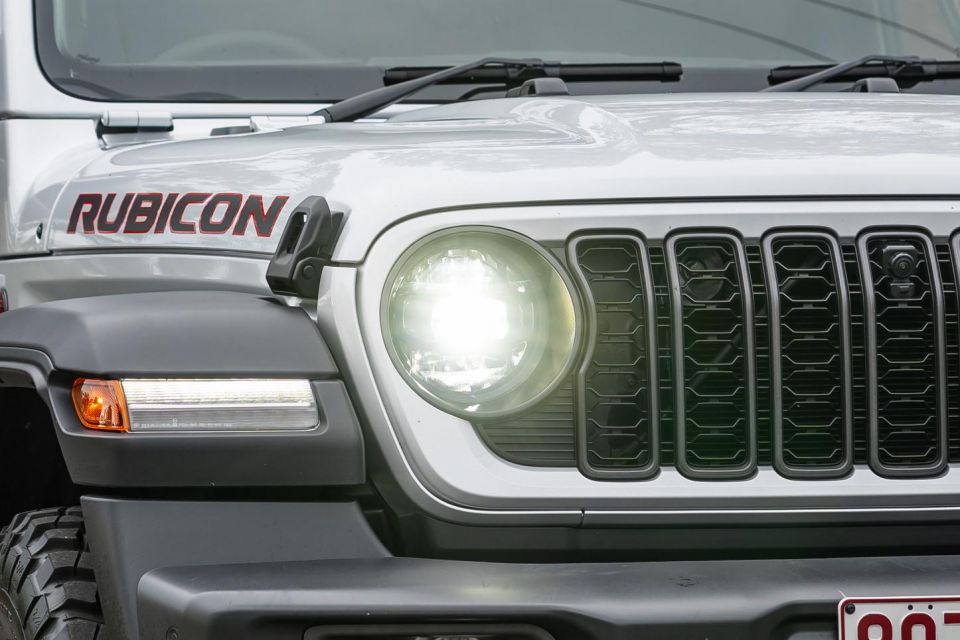

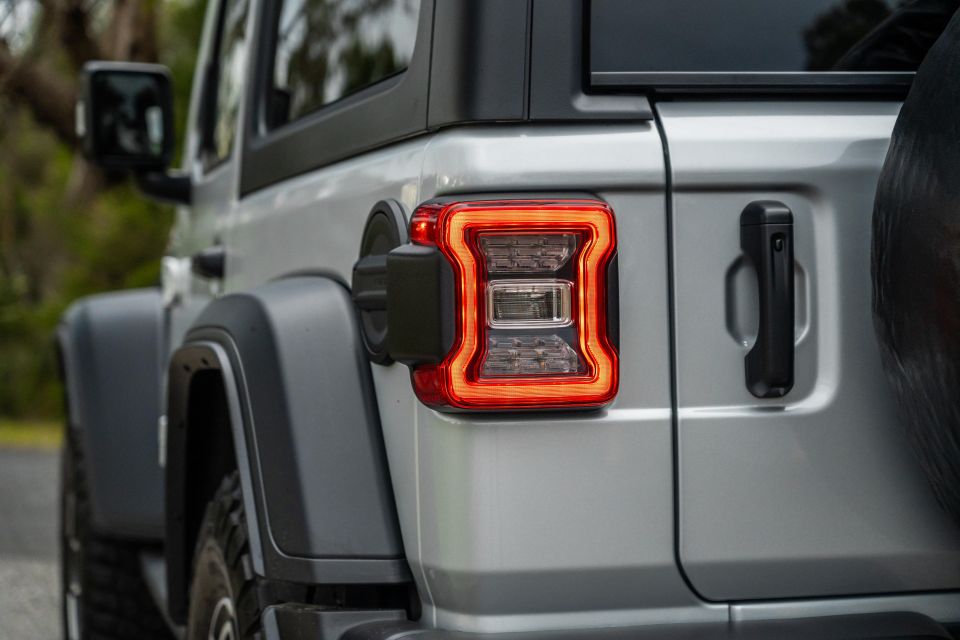
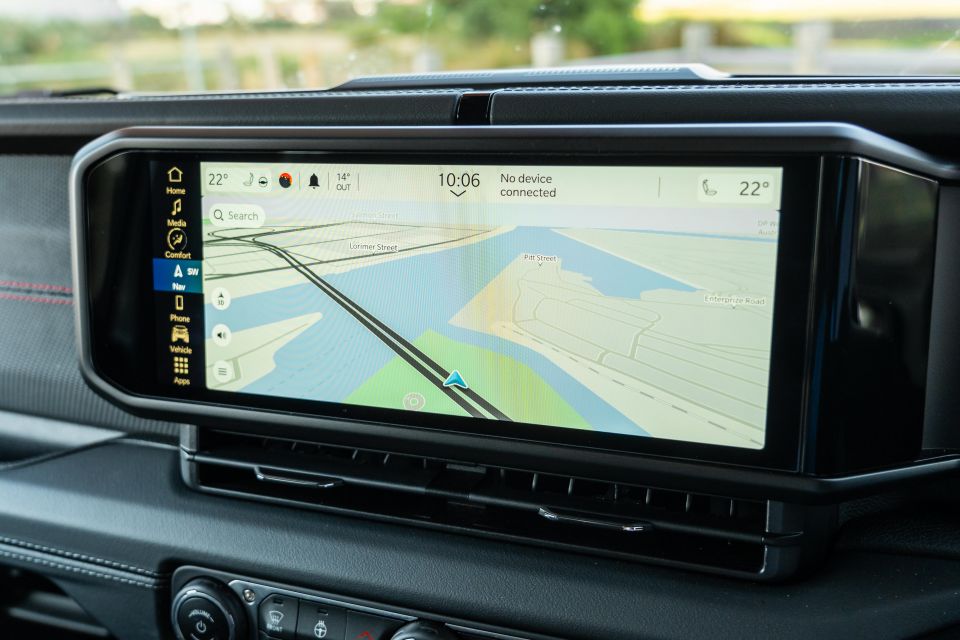
Wrangler Sport S standard equipment highlights:
Wrangler Overland adds:
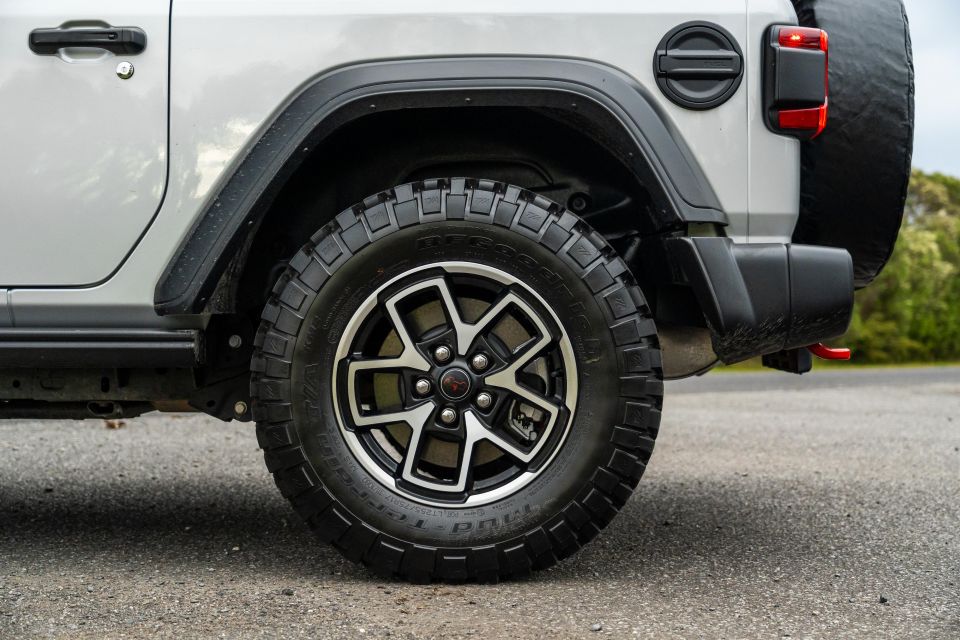

Wrangler Rubicon adds:
To see how the Jeep Wrangler lines up against the competition, check out our comparison tool
The Jeep Wrangler range, including the two-door, has a three-star ANCAP rating based on testing conducted in 2019.
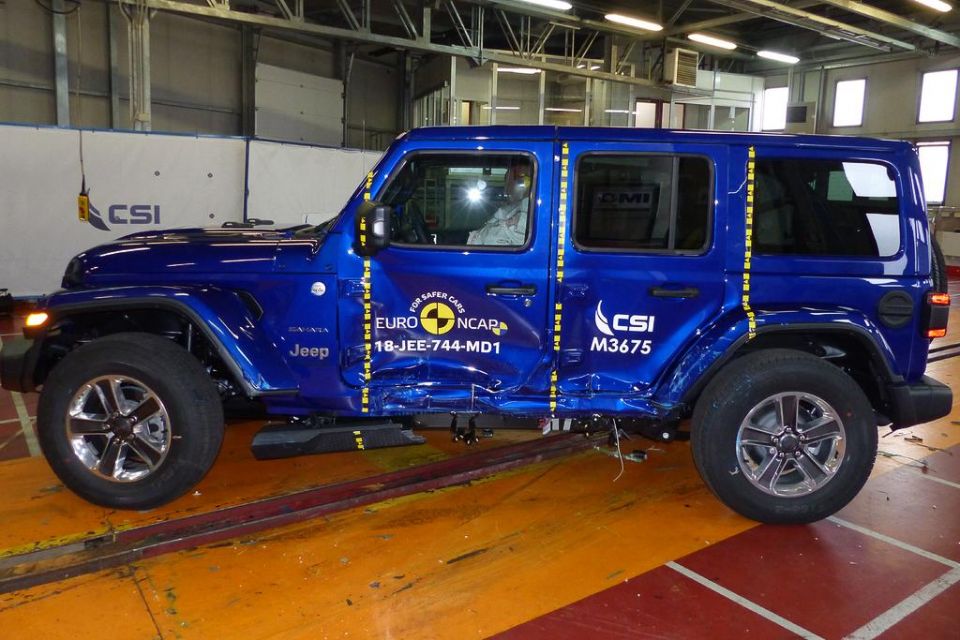
| Category | Jeep Wrangler |
|---|---|
| Adult occupant protection | 23.0 out of 38 (60%) |
| Child occupant protection | 39.4 out of 49 (80%) |
| Vulnerable road user protection | 23.9 out of 48 (49%) |
| Safety assist | 6.7 out of 13 (51%) |
To see how the Jeep Wrangler lines up against the competition, check out our comparison tool
The Jeep Wrangler is covered by a five-year, 100,000km warranty. Logbook servicing is required every 12 months or 12,000km, whichever comes first, and if you service with the dealer you’ll receive roadside assistance.
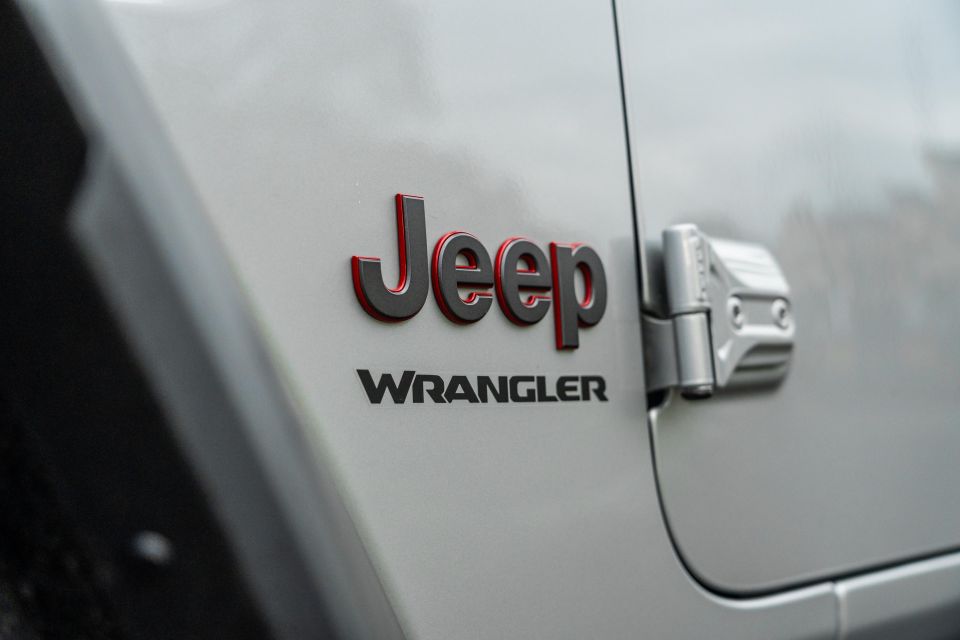
| Servicing and Warranty | Jeep Wrangler |
|---|---|
| Warranty | 5 years/100,000km |
| Roadside assistance | Service activated |
| Service intervals | 12 months/12,000km |
| Capped-price servicing | 5 years |
| Total capped-price service cost | $1995 |
To see how the Jeep Wrangler lines up against the competition, check out our comparison tool
The Rubicon, or for that matter any Wrangler, isn’t the type of car you should buy because of its looks. This is purpose-built adventure machine that’s designed to climb mountains, and if you expect it to also be as comfortable and refined as mainstream SUV day-to-day, prepare to be sorely disappointed.
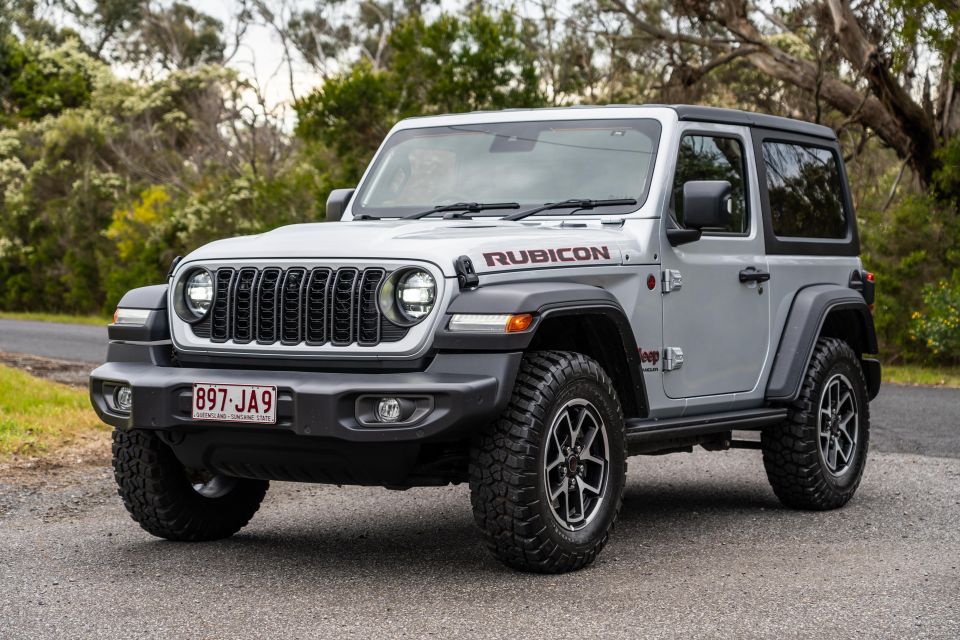
The Wrangler has long been a pioneer in the off-road vehicle market and the latest update continues this, but it still leaves a lot to be desired on-road. It is a ladder-frame SUV with solid front and rear axles, after all. Its steering is vague, its tyres rumble and wind noise is off the charts.
The new turbo-four engine is a good replacement for the dozy old Pentastar V6 that feels like it has been around since the dawn of time. It offers plenty of punch and is capable of getting this box on wheels moving along briskly, though its uninspiring engine note lacks character.
There are still the same fundamental packaging flaws inside, including the lack of a driver’s footrest and limited storage, but it’s good to see the cabin technology has been improved by a larger touchscreen, among other additions.
It’s a minor thing, but due to the radio antenna now being integrated into the front windscreen, you no longer have to worry about snagging it on low-hanging brush off-road. It also cleans up the exterior aesthetics of the Wrangler.
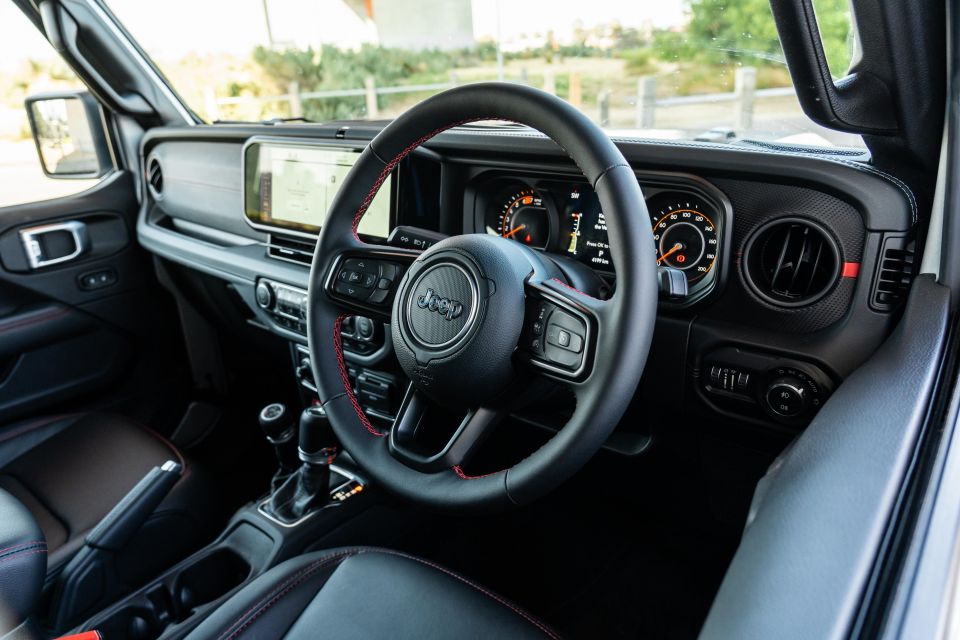
This vehicle continues to be a very unique and niche option in the large SUV segment, especially when you look at the price. Its closest rival is arguably the considerably smaller and more affordable Jimny, though the GWM Tank 300 is another conceptually similar but plusher rival.
For the asking price, however, the Wrangler – especially in flagship Rubicon guise – is priced closer to the luxurious Land Rover Defender, which notably can also be had in three-door guise. It doesn’t offer the same amount of off-road bells and whistles as standard, though you can option it up to the wazoo.
If you don’t spend a considerable amount of time off-road but still want to hit the trails or head overland, you’re better off looking at other body-on-frame SUVs like the Ford Everest or Toyota Prado, as they offer considerably more on-road comfort.
But especially in two-door guise, the Wrangler is still king of the mountain and still oozes the type of cool factor that a Jimny owner like me appreciates. Even in this boring silver exterior paint, it turns heads. I’ll take one in Hydro Blue, please.
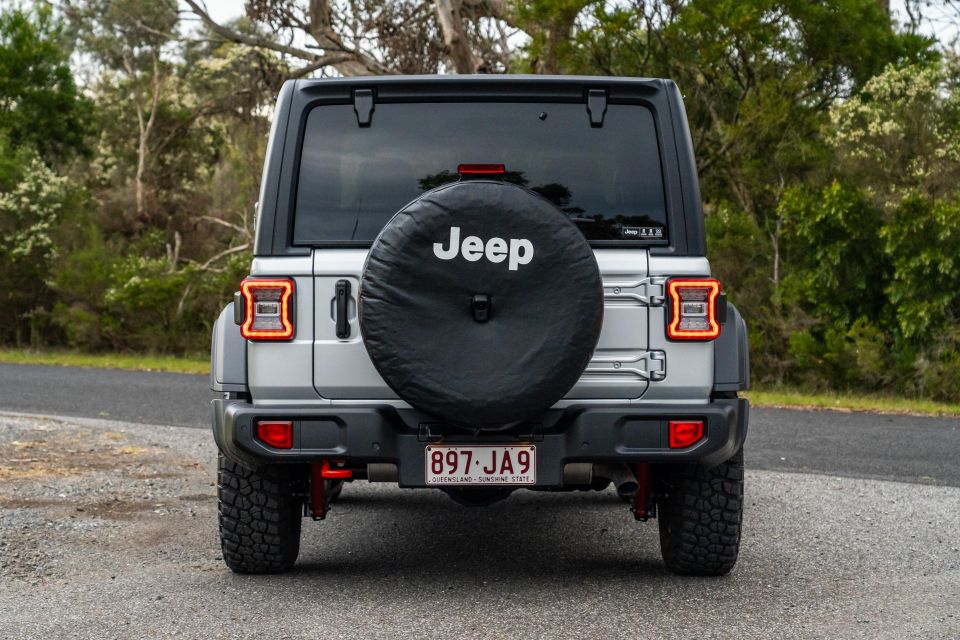
Interested in buying a Jeep Wrangler? Get in touch with one of CarExpert’s trusted dealers here
Click the images for the full gallery
MORE: Everything Jeep Wrangler
Where expert car reviews meet expert car buying – CarExpert gives you trusted advice, personalised service and real savings on your next new car.
Jack Quick is an automotive journalist based in Melbourne. Jack studied journalism and photography at Deakin University in Burwood, and previously represented the university in dance nationally. In his spare time, he loves to pump Charli XCX and play a bit of Grand Theft Auto. He’s also the proud owner of a blue, manual 2020 Suzuki Jimny.


Andrew Maclean
5 Days Ago
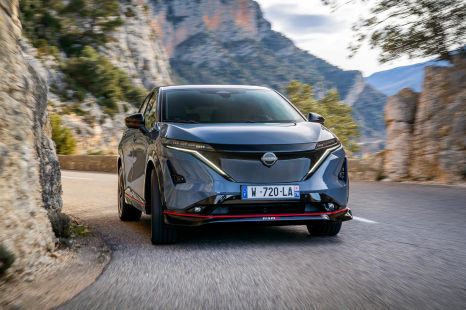

Shane O'Donoghue
5 Days Ago
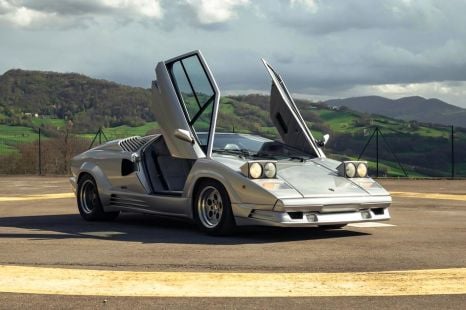

Anthony Crawford
4 Days Ago


Matt Campbell
3 Days Ago


James Wong
2 Days Ago


Max Davies
6 Hours Ago